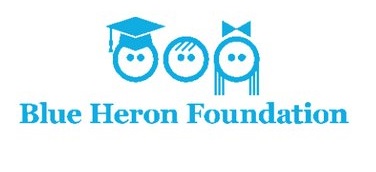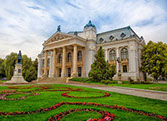
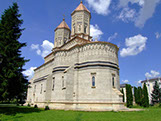

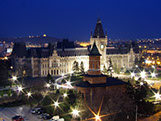
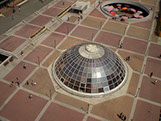

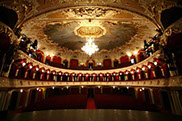
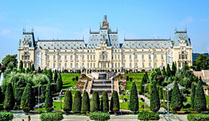
2018 Revival ARA Congress
ROMANIA AT THE GREATER UNION CENTENNIAL ANNIVERSARY
Invited Speakers
Horia Cristea
Professor Doctor, West University of Timisoara
Faculty of Economics and Business Administration
PRESENTATION: Higher School of Economics and its Problems
Dumitru Horia Cristea is a professor at the West University of Timisoara, Doctor Honoris Causa of the University of Craiova and of the Valahia University of Targoviste. He is the author of 152 studies, articles and published works not only in Romania, but also overseas. He is the coordinator of 53 research grants. Among the papers published by Mr. Horia Cristea, there are Managementul financiar al companiei (2010) – coauthor • Elemente de teorie și practică fiscală (2009) – main author • Managementul financiar-contabil al organizațiilor – main author • Contabilitatea și calculațiile în conducerea întreprinderii (2003) – sole author • Finanțele întreprinderii (2003) – main author • Doctrină și deontologie în profesia contabilă în România (2001) – main author • Audit financiar (1995) – sole author • Contabilitatea firmei (1993) – sole author • Noul sistem contabil (1993) – sole author • Finanțele întreprinderii (1993) – sole author • Calculația costurilor (1986) – sole author • Finanțe-credit (1976) – sole author.
He is a member of such national professional organisations as CECCAR, ANEVAR, CAFR, but also of international organisations as The Institute of Associate Professionials of the Order of Accountant Expert of France, Paris School of Economics, International Fiscal Association. He has been a department chair, dean and vice-chancellor for the West University of Timisoara for over 18 years.
Abstract of the talk:
Higher School of Economics and Its Problems
Horia Dumitru Cristea
West University of Timisoara, Faculty of Economics and Business Administration
Timisoara, Romania
Abstract: The search for the new frame are intensifying, they become more intense. Their tragedy is the imbalances that appear and develop in a dynamic world, in the extensive-intensive enigma.
And everything is examined from the point of the view of finances and resources. And this is not a recent turn of events. The “idea that the riches of a nation reside in work and qualification“ (The Evaluation of Systems and of the Educational Processes) appeared in the XVII th century. The Mercantilists included the spendings for education in the “profitable investments in the human capital“ section.
It’s no longer a secret that the increase of the Gross National Product is caused by education too. But the increase of GNP becomes a rule for the development of the educational system.
What then are the meanings, the goals of education? In this aspect, a considerable role belongs to the researchers.
In a world full of transformations it is not easy to issue definite theories related to the academic training and its objectives in the 21st century or the 3rd millennium.
In a world full of contrasts, the intelligentsia will take the dominant role in the control and management of the economic development that will come together with
a qualitative improvement of life in general.
If we formulate an image of the school of the future we can also develop certain financial prognosis or, in a larger sense, economic prognosis regarding the consolidation, the permanence of the school, of the type of school chosen.
Keyword: source of funding, objectives, preferences, principles

